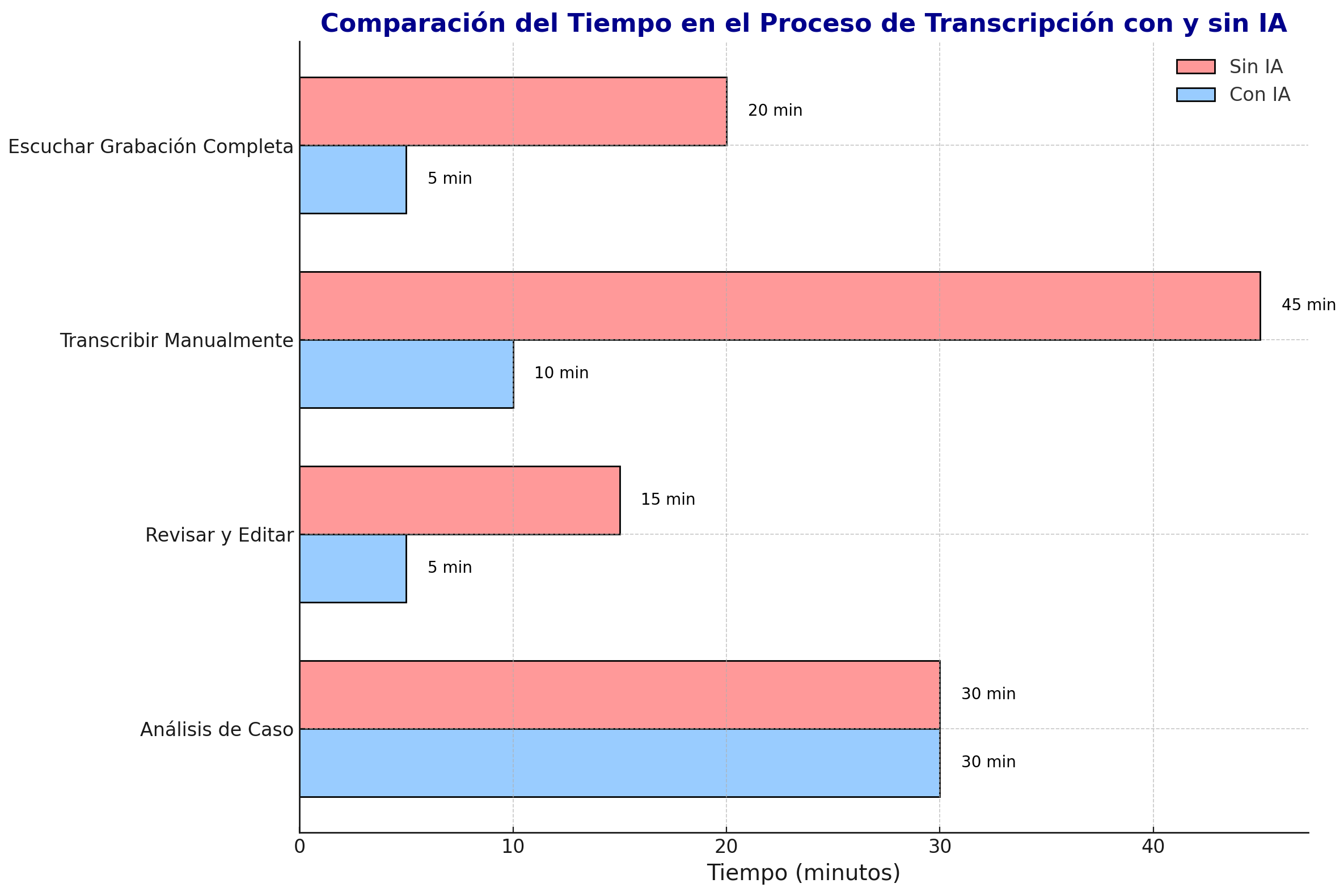In recent years, speech recognition technology has gained ground in the legal field, providing lawyers, paralegals and other professionals with valuable tools to manage and analyse large volumes of spoken content from court recordings, depositions and client meetings. Legal professionals can now use advanced speech recognition software to transcribe audio files accurately and efficiently, ensuring that critical data is easily searchable and accessible. This technology addresses a common need in the legal industry for reliable, fast and secure methods to process large amounts of verbal information, saving time and improving productivity.
Why is Transcription Essential in the Legal Field?
Audio transcription is essential in the legal sector for several reasons. It allows an accurate record to be kept of what was said in trials or hearings, avoiding misunderstandings or misinterpretations. It also facilitates case review, as lawyers and solicitors can search for key terms and specific references, speeding up preparation for trials or appeals. Transcription also provides quick access to information, allowing the legal team to locate specific fragments without having to listen to lengthy full recordings. Finally, transcripts, in digital or hard copy format, are archived as official documents and can easily be presented in court or attached to legal files.
How Does Automatic Audio Transcription Work?
Audio transcription traditionally required human transcriptionists to manually listen and type word for word. Today, automatic transcription technology uses artificial intelligence (AI) to transcribe audio into text quickly and accurately. These tools recognise words, interpret sentences and detect pauses, allowing for highly accurate transcription in less time. AI-generated transcripts are complemented by speaker identification (recognition of who is speaking) and keyword search, features that optimise content review for legal teams.

Advantages of Using Audio Transcription in Trials and Legal Hearings
Implementing an automated transcription system for trials and legal hearings brings significant benefits to legal professionals. Some of the main advantages include:
Time Savings: Automated transcription technology converts audio to text in a matter of minutes, allowing attorneys to focus on preparing legal strategy rather than manually transcribing.
Cost Reduction: By eliminating the need for manual transcription services, law firms can reduce operating expenses, as there is no need to hire staff dedicated solely to this task. Increased
Accessibility and Collaboration: Transcripts in digital format can be easily shared among team members, who can access the content from any device, at any time.
Ease of Search and Reference: With the integrated search capability, the legal team can quickly locate key words or phrases in the transcribed text, which is crucial when reviewing testimony or analysing depositions.
Use Cases for Audio Transcription in Trials and Legal Hearings
Audio transcription for trials has wide applications in the legal sector, some of which include:
Testimony Review: Lawyers can analyse witness statements and compare versions at different points in the legal process, identifying inconsistencies or details important to the case.
Appeals and Judicial Review: In appellate cases, having a complete transcript makes it easier to review previously presented arguments, allowing for a well-informed legal strategy.
Trial Preparation: Legal teams can use transcripts to study the positions of the parties and prepare effective cross-examinations or questionnaires, based on the exact words of each testimony.
Court References: In complex trials, lawyers can rely on transcripts to quote specific excerpts during their interventions, which can strengthen the presentation of the case.
Probus: Automated Legal Transcription Solution
For professionals looking for a reliable audio transcription solution for trials and legal hearings, Probus offers an advanced, customised platform for the legal sector. Probus employs cutting-edge AI technology to turn recordings into accurate transcripts in a matter of minutes, with search, speaker identification and secure cloud storage capabilities. This tool allows lawyers and solicitors to save time, reduce costs and easily access critical case information, optimising their resources and improving their productivity in managing legal cases.
In conclusion, audio transcription for trials is an essential tool for the legal field, and Probus provides a complete, effective solution designed specifically for the needs of legal professionals.
